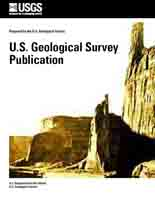Recording and submitting specimen history data
Links
- Document: Report (pdf)
- Larger Work: Field manual of wildlife diseases: General field procedures and diseases of birds
- Download citation as: RIS | Dublin Core
Abstract
History can be defined as a chronological record of significant events. In wildlife disease investigations, determining the history or background of a problem is the first significant step toward establishing a diagnosis. The diagnostic process is often greatly expedited by a thorough history accompanying specimens submitted for laboratory evaluation. This information is also important for understanding the natural history or epizootiology of disease outbreaks, and it is difficult, if not impossible, to obtain the history after the outbreak has occurred. Detailed field observations during the course of a die-off and an investigation of significant events preceding it also provide valuable information on which to base corrective actions. The most helpful information is that which is obtained at the time of the die-off event by a perceptive observer.
Suggested Citation
Franson, J.C., 1999, Recording and submitting specimen history data: Information and Technology Report 1999-0001, 4 p.
| Publication type | Report |
|---|---|
| Publication Subtype | Federal Government Series |
| Title | Recording and submitting specimen history data |
| Series title | Information and Technology Report |
| Series number | 1999-0001 |
| Year Published | 1999 |
| Language | English |
| Publisher | U.S. Geological Survey |
| Publisher location | Reston, VA |
| Contributing office(s) | National Wildlife Health Center |
| Description | 4 p. |
| Larger Work Type | Report |
| Larger Work Subtype | USGS Numbered Series |
| Larger Work Title | Field manual of wildlife diseases: General field procedures and diseases of birds |
| First page | 3 |
| Last page | 6 |


